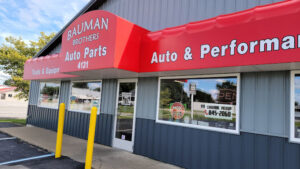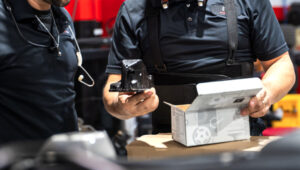The slower growth of licensed drivers and fewer miles traveled by the average driver have potential consequences for aftermarket
Fort Wayne, Ind.—Gen Z teenagers do not view the world from behind a steering wheel. Today, nearly half of 18 year olds (an estimated 47%) have not acquired their driver’s license. Compare that to 1983 when over 85% of 18-year-old Boomers secured a driver’s license.
Additionally, today’s Gen Z teenagers who get a driver’s license drive considerably fewer miles annually than 18 year olds in 1983. Those trends have long-term implications for vehicle use and aftermarket volume, according to a new analysis from Lang Marketing. The following are key takeaways from the report.
Gen Z Teenagers Do Not Love Cars
Americans’ love affair with cars has been legendary. In no other country is the ratio of vehicles to people as high as it is in the U.S. But times are changing. The special relationship with their vehicles is fading, especially among younger age groups. Many Americans under 20 have significantly different attitudes toward automobiles than previous generations.
Changing Culture
Three primary factors are reshaping young Americans’ attitudes toward vehicles and their use: environmental concerns, social media and how cars are perceived. These factors are shaping the relationship between young Americans and vehicles.
Save the Planet
A majority of Americans under 20 believe that the environment is under threat. This was not a concern of teenagers in the early 1980s.
Currently, most young Americans believe that decisive steps must be taken to reduce the threat of climate change. Environmental preservation ranks among their top three values. Accordingly, many young Americans see vehicles (especially fossil-fueled cars and light trucks) as dangerous to the environment.
Social Media Replaces Driving
The unprecedented use of social media among young Americans is a major factor reducing their interest in getting a driver’s license. A driver’s license was a rite of passage for U.S. teenager a few decades ago, but not so today.
Many young Americans believe that traveling to see friends is unnecessary because they can interact with them though social media from virtually any location. In addition to lessening the need for driving among young American, social media has shaped their attitudes toward vehicles as climate killers.
Changing Consumer Perceptions and Vehicle Use
For earlier generations, especially Baby Boomers, vehicles were a source of freedom and self-expression. Today’s teenagers regard vehicles as a threat to the environment.
Uber and other driving services have made car ownership unnecessary for many. They perceive vehicles in a narrow, utilitarian sense, far different from earlier generations, especially Baby Boomers, who often saw cars as part of their self identity.
Steady Decline in Driver’s Licenses
In 1983, only 14% of 18-year-old Americans (Baby Boomers) did not have a driver’s license. This percentage rose sharply in the following decades, and by 2010 over one-quarter (27%) of 18-year-old Americans did not drive.
This trend has continued, and Lang Marketing estimates that today nearly half (47%) of 18 year olds do not have a driver’s license. In addition, a large share of today’s licensed teenagers seldom drive a car. The unprecedented share of today’s 18 year olds without a driver’s license has slowed the growth of licensed drivers over the past five years compared.
Aftermarket Impact
The attitudes of Gen Zers (which differ significantly from earlier generations) have important implications for vehicle use and aftermarket product volume growth. The slower growth of licensed drivers and fewer miles traveled by the average driver have potential consequences for aftermarket product use in the future.
MaaS
Mobility as a Service (MaaS) is one possible outcome of the changing attitudes of young Americans, with a shift away from personally-owned vehicles toward hiring mobility as a service.
The perceptional trends of Americans toward vehicles could evolve into vehicle sharing (as a stepped-up version of Uber) or change how Americans use and own (or do not own) cars. Mobility as a Service would have large aftermarket implications. It will take a number of years to measure the impact of the Gen Zers’ attitudes toward vehicles and how this impacts their use of vehicles as they grow older.









Comments are closed.